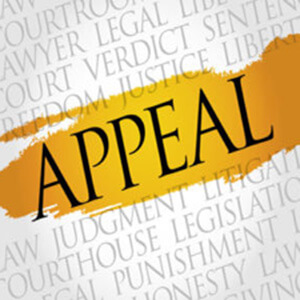 On November 8, 2018, the Florida Supreme Court issued a 15-page opinion reversing the death penalty imposed upon Eriese Alphonso Tisdale. Attorney Jeffrey H. Garland represented Mr. Tisdle on this appeal.
On November 8, 2018, the Florida Supreme Court issued a 15-page opinion reversing the death penalty imposed upon Eriese Alphonso Tisdale. Attorney Jeffrey H. Garland represented Mr. Tisdle on this appeal.
Mr. Garland anticipates filing a petition before the United States Supreme Court seeking certiorari review. Mr. Garland will argue that any resentencing proceeding would violate double jeopardy principles.
In Tisdale’s case, the jury was instructed that a vote of just 7 – 5 would constitute a jury recommendation of death. The jury voted 9 – 3 for death.
After the jury trial was over, but before sentencing, the United States Supreme Court (SCOTUS) struck down Florida’s death penalty procedure in Hurst v. Florida, 136 S.Ct. 161 (2016). SCOTUS found that the procedure was defective, because the jury did not make the sentencing decision, and because the jury did not make the necessary findings.
The State moved to continue the final sentencing hearing. While Tisdale’s case for sentencing was awaiting final sentencing, the Florida Legislature enacted Chapter 2016-13, §§ 1, 2 and 3, which significantly amended Florida’s death penalty procedure. The significant change for Tisdale was the requirement that at least 10 jurors vote for death.
Tisdale objected at the trial level to the death penalty on the basis that the amendment was retroactive and applicable to his case, which was still pending for sentencing. The trial court overruled these objections and imposed a death sentence on 4/29/2016.
Indian River Appeals Attorney Jeffrey H. Garland, P.A.
On appeal, Garland argued that for a generation the Florida Supreme Court had held that the death penalty was “procedural” and that changes could be applied retroactively.
The Florida Supreme Court agreed, in Perry v. State, 210 So.3d 630 (Fla. 2016), that Ch. 2016-13 was procedural and retroactive. The Florida Supreme Court further held that Ch. 2016-13 was unconstitutional to the extent that it did not require a unanimous jury death verdict.
Sounds like Tisdale would receive life? After all, his jury voted only 9 – 3 for death. The amendments were retroactive, right?
Not so, said the Florida Supreme Court. None of the amendments applied to Tisdale, even though his case was sentenced after the amendments went into effect, and even though death penalty amendments are retroactive.
It will be up to SCOTUS to consider whether double jeopardy principles require that a life sentence be imposed. SCOTUS could grant certiorari to consider that question in the context.
If you or a loved one are in a similar situation, contact Indian River criminal defense lawyer Jeffrey H. Garland, P.A. today at 772.489.2200.
